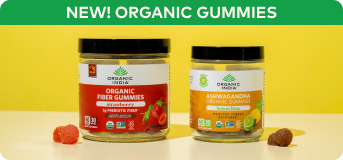

Section

Back
If you’re perimenopause or menopause, chances are you’ve experienced hot flashes.
These uncomfortable surges of heat can crop up at any time and, depending on the person, range from annoying and slightly embarrassing to frightening and life disruptive.
They also tend to worsen at night, which adds insult to injury if you already have trouble sleeping.
The good news is there’s no need to suffer through hot flashes or resort to HRT if that doesn’t resonate with you (and no shame if it does! Herbs can still help).
Various traditional herbs, such as Ayurvedic, Traditional Chinese, and Western herbs, have been used for centuries to help women alleviate or eliminate hot flashes.
This article shares nine of the best cooling herbs for hot flashes based on traditional use and modern research.
What Are Hot Flashes?
Hot flashes, also known as night sweats or vasomotor symptoms, are a sudden surge of warmth or heat that women experience during perimenopause and menopause.
They’re caused by shifting hormones that alter the body’s internal temperature, resulting in the signature sweating and skin/facial flushing.
Many women also experience a sharp or gradual change in mood or even anxiety leading up to a hot flash, which is indicative of their hormonal nature.
Hot flashes can also cause heart palpitations, shortness of breath, and severe sweating that can last a few seconds or several minutes.
Hot flashes can happen at any time, but many women experience them at night, known as night sweats.
They can range from mild to severe, annoying to life-altering, depending on the person.
They can also last several years, often becoming more intense towards the end of the perimenopause transition, and change in severity and pattern, which is why many women seek natural relief.
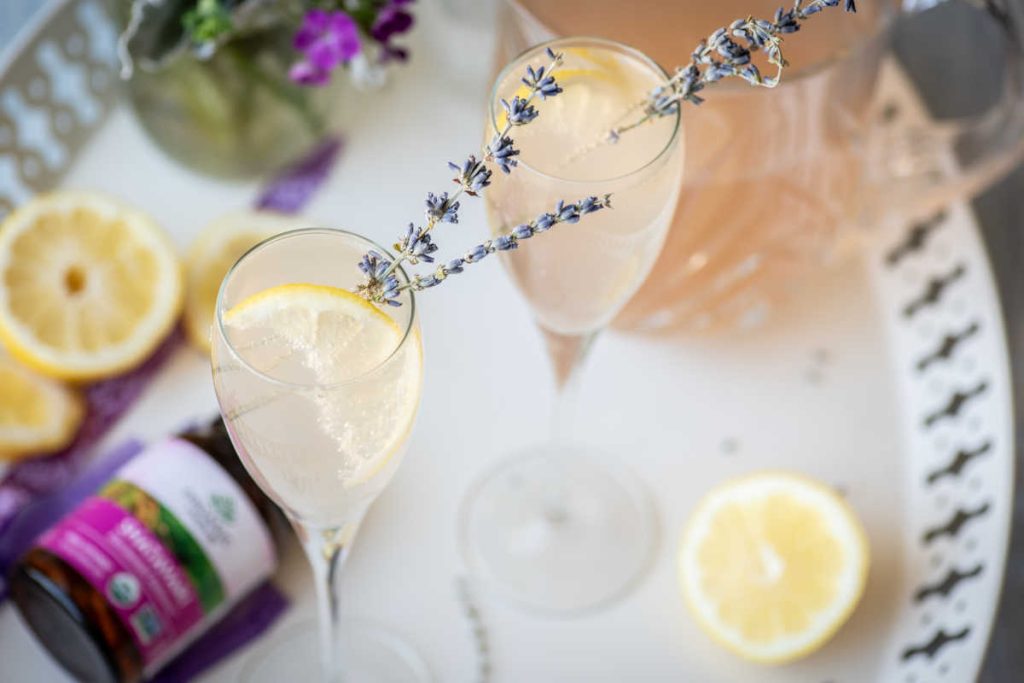
Why Do I Get Hot Flashes?
Experiencing hot flashes during perimenopause and menopause is extremely common, with approximately two-thirds of women reporting symptoms (so you’re not alone!).
Hot flashes are caused by dips in hormones, particularly estrogen, which affects the body’s heating and cooling center via the hypothalamus.
But why do they happen to some women and not others?
As mentioned previously, hot flashes come from fluctuations in hormones, primarily estrogen and progesterone, which is a normal part of perimenopause and menopause.
That partially explains it, but why then do some women get them worse than others, or not at all?
It depends on who you ask.
According to Western medicine, we don’t know exactly why some women suffer more than others, but it may be due to genetics, weight, pre-existing conditions, cigarette smoking, or ethnicity.
However, traditional wellness systems, such as Ayurveda and Traditional Chinese Medicine, see severe, consistent, or disruptive hot flashes as an indicator of imbalance.
Although everyone is different, Traditional Chinese Medicine may see hot flashes as an indicator of excess liver heat or congestion.
In Ayurveda, hot flashes may be viewed as a Vata-Pitta imbalance and treated with cooling herbs and lifestyle practices.
There are also various triggers for hot flashes, which vary between individuals.
Some common hot flash triggers include:
- Caffeine
- Alcohol
- Body Composition
- Spicy foods
- Stress
- Emotional upset
- Cigarette smoking
The most vital thing to remember is that you can do something about hot flashes, and that herbs can help.

Top 9 Herbs For Hot Flashes
Women worldwide have a rich history of knowledge and practice in the ways and properties of functional plants.
From PMS symptoms to beauty, reproductive health to menopause, midwives, herbalists, shamans, and medicine women have long relied on herbs for wellness and empowerment.
So it should come as no surprise that women have strong herbal allies for hot flashes.
This list of herbs for hot flashes will focus on Ayurvedic, Western, and Traditional Chinese herbs based on research and traditional use.
As always, talk to your doctor or healthcare practitioner (preferably someone trained in herbalism) for individual recommendations.
1. Shatavari
Known as “the Queen of herbs” alongside Tulsi, Shatavari is considered foundational for women’s health across all stages and seasons of life in Ayurveda.
Belonging to the asparagus family, Shatavari is considered an adaptogen (stress reliever), female rejuvenator, immune-regulator, and whole-body female tonic.
It’s also commonly recommended for various symptoms of perimenopause and menopause, including hot flashes and estrogen support.
Learn more about the history and benefits of this herbal Queen, in: Benefits of Shatavari for Female Wellness.
2. Lodhra
Lesser-known in the West, Lodhra is one of Ayurveda’s primary herbs for supporting female hormone balance during the menstruating years and transition to menopause. Lodhra is in our Essential Female herbal formula.
It’s also well-known for its cooling effects on hot flashes and mood, likely due to its estrogen-supportive properties.
Learn more in: Top 9 Lodhra Benefits for Women
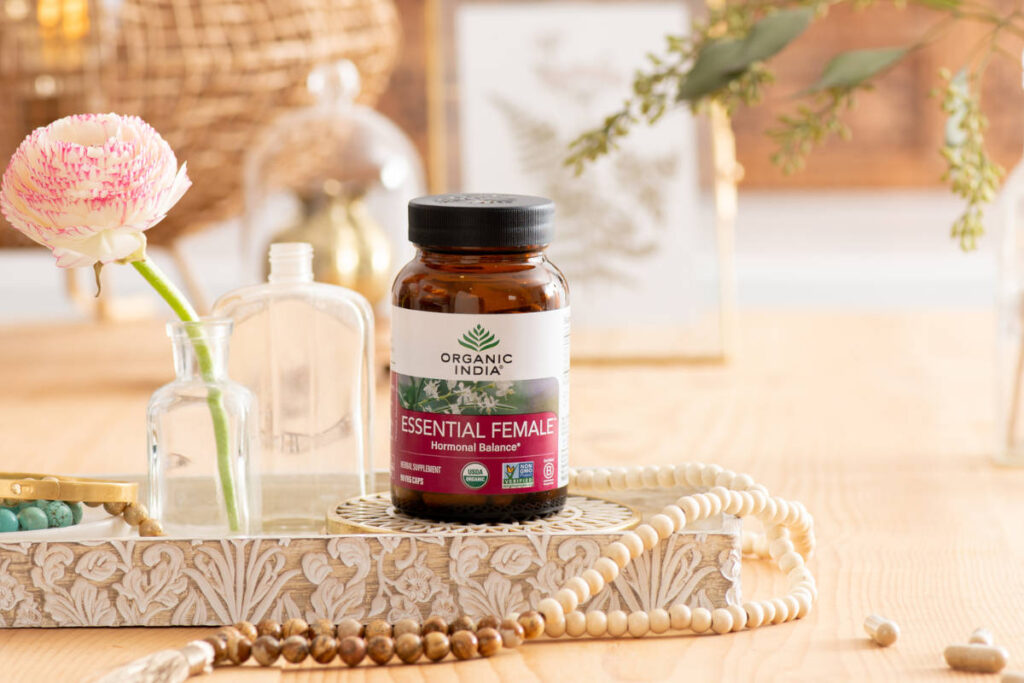
3. Peppermint
With its natural cooling properties, peppermint can offer fast relief for hot flashes, especially when used topically.
For example, one study found that massage with Peppermint essential oil diluted in sweet almond oil was effective for alleviating various menopausal symptoms, including hot flashes and urogenital symptoms.
Another study found peppermint hydrosol (the aromatic water left over after steam-distilling essential oils) was also effective for cooling hot flashes.
In Ayurveda, peppermint is considered a cooling food and may be recommended internally and/or topically for hot flashes or overall cooling of body, mind, and spirit.
4. Amla
Amla, also known as Amalaki and Indian Gooseberry, is one of Ayurveda’s most widely used herbs (technically a fruit), alone and in the Triphala herbal formula.
Amalaki is also considered a divine remedy because it contains all five tastes: sweet, sour, bitter, astringent, and pungent.
According to Ayurvedic medicine, it is considered a cooling herb and is very beneficial for digestion, elimination, and liver health—all of which play a role in perimenopausal and menopausal symptoms.
Amla is also tridoshic, meaning it can benefit and balance all three doshas: Vata, Pitta, and Kapha.
Learn more about Amalaki and what sets Organic India’s apart in: Amla: Fruit Of Heaven.
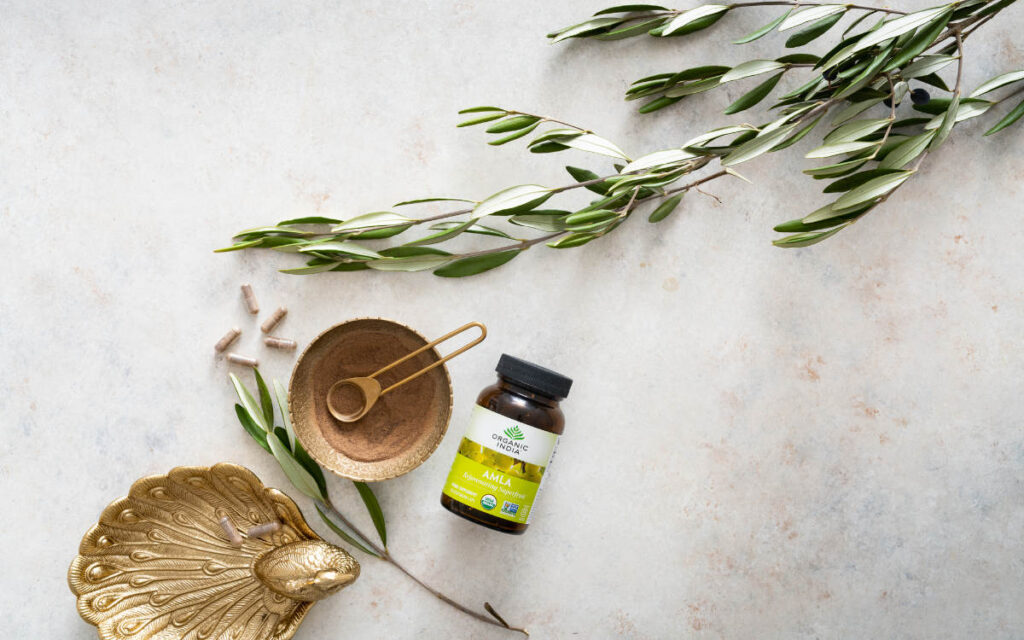
5. Red Clover
Move over, soy!
Red clover may seem familiar, but it is one of nature’s best sources of natural phytoestrogens, known as isoflavones.
It is extensively used in Western herbalism as a tonic and for perimenopause and menopausal symptoms, with research suggesting its efficacy for reducing hot flashes and other menopausal symptoms.
6. Black Cohosh
Black Cohosh is probably the best-known herb for menopause and reducing hot flashes.
Used extensively in Eastern and Western herbalism, research has found Black Cohosh contains phytoestrogen compounds that may help with hot flashes, mood issues, and sleep problems during perimenopause and menopause.
Some herbalists recommend taking Black Cohosh during the first phase of the cycle, when estrogen should be rising, then switching to another herb, like Dong Quai, during the second half.
Talk to your herbalist or doctor/practitioner trained in herbalism for individual recommendations.
7. Bacopa
Bacopa, also known as Brahmi, is best known as a nootropic or brain-supportive herb.
However, it is also often indicated for hot flashes due to its cooling nature.
Bacopa can offer additional benefits during perimenopause and menopause, such as helping alleviate brain fog, sharpen memory, and elevate mood.
Learn all about this revered herb in: Bacopa Benefits for Brain Health.
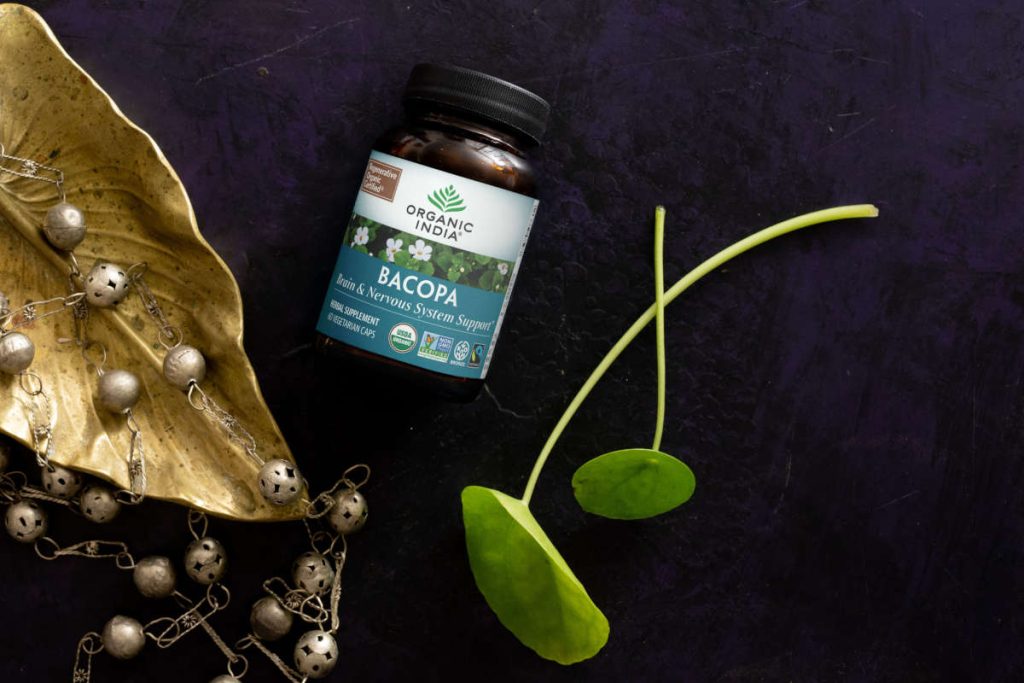
8. Dong Quai
Dong Quai is a traditional Chinese herb widely used for female reproductive health during the menstruating years, perimenopause, and menopause.
Many women swear by it for relieving things like PMS and menstrual cramps, while others lean on it for relief from hot flashes/night sweats, mood swings, and other menopausal symptoms.
Research also supports the use of Dong Quai, either alone or combined with other herbs like Black Cohosh, for reducing hot flashes,
9. Gotu Kola
Like Bacopa, Gotu Kola (aka: herb of longevity) is best known for its cognitive support benefits and is recommended for hot flashes due to its cooling nature.
Emerging research also suggests Gotu Kola’s active plant compounds, known as triterpenes, may have specific protective benefits for ovarian and breast health, but more studies are needed.
Related reading: Gotu Kola: Herb of Longevity.
Cooling Teas for Hot Flashes
Teas are a fantastic way to enjoy cooling herbs for hot flashes.
In fact, in very hot climates, like India, people sip hot tea to help induce sweating, which cools the body.
Of course, you can also drink your tea iced. Here are some suggestions:
- Tulsi Peppermint
- Sparkling Lavender Lemonade With Shatavari
- Soothing Blue Moon Milk with Tulsi & Shatavari
- Perfect Tulsi Iced Breakfast Tea
- Chilled Spiced Turmeric Latte (iced golden milk)
- Tulsi Hibiscus
Shop Organic India’s Regenerative Organic Certified Teas.
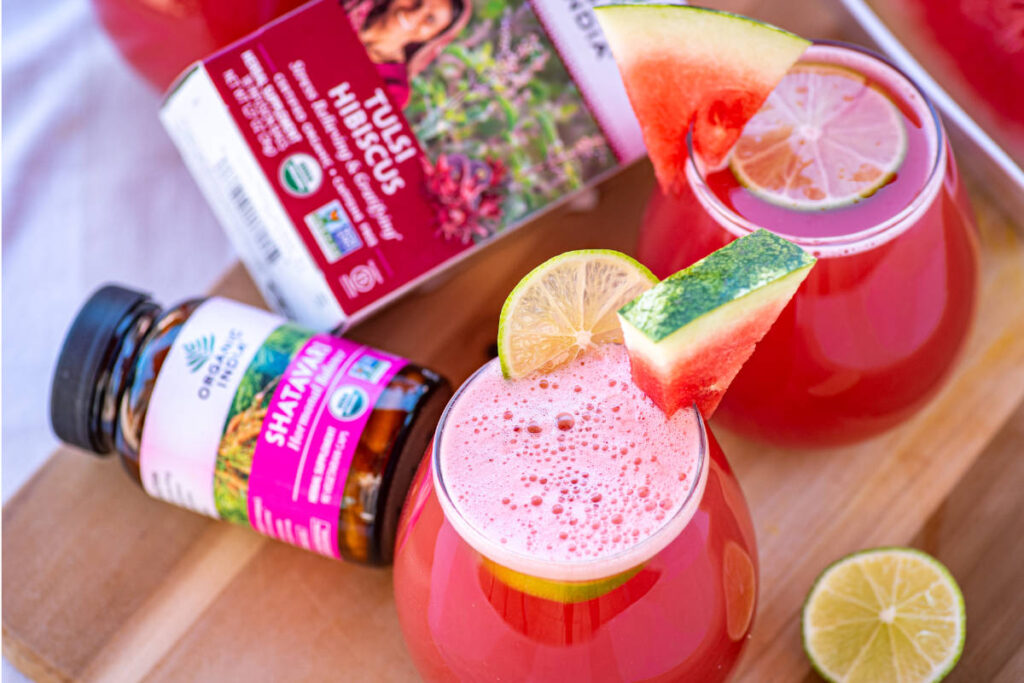
Explore Organic India’s Herbs for Hot Flashes
Hot flashes may be common, but that doesn’t mean you have to accept months or years of embarrassment and discomfort.
These herbs are here for you to help alleviate hot flashes, reset your emotional well-being, and put you back in charge of your well-being and destiny.
Organic India offers several traditional and Regenerative Organic certified Ayurvedic herbs and supplements to support women during perimenopause, menopause, and all stages of life.
Some of our most popular supplements in this category include:
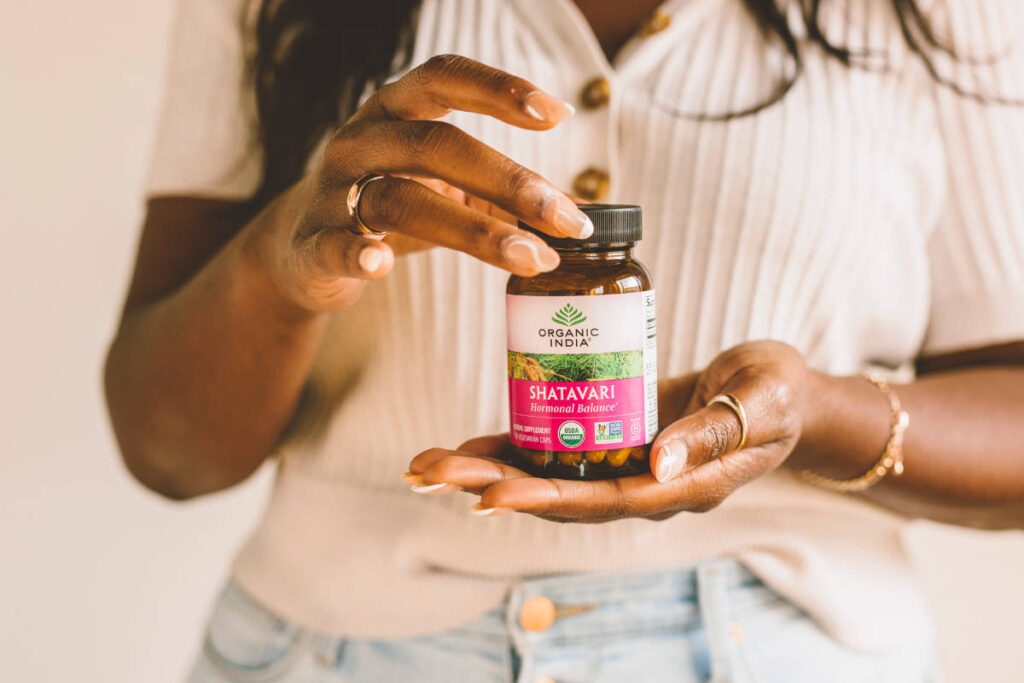
What sets Organic India’s products apart?
Our herbs are all grown on regenerative organic or certified regenerative organic small family farms in India, where farmers are paid a fair wage for their goods and services.
We purposefully partner with 2000 independent small family farmers (50% have been with us for over 15 years) to ensure the cleanest, highest-quality herbs from seed to shelf. And yes, we test for potency, identity, and purity.
We’re also the world’s first Fair Trade Certified supplement company, and a certified B-Corp.

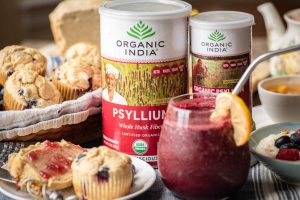
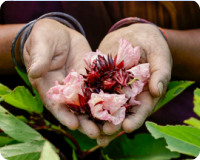
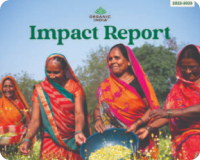
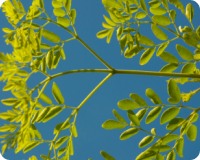
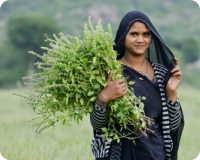
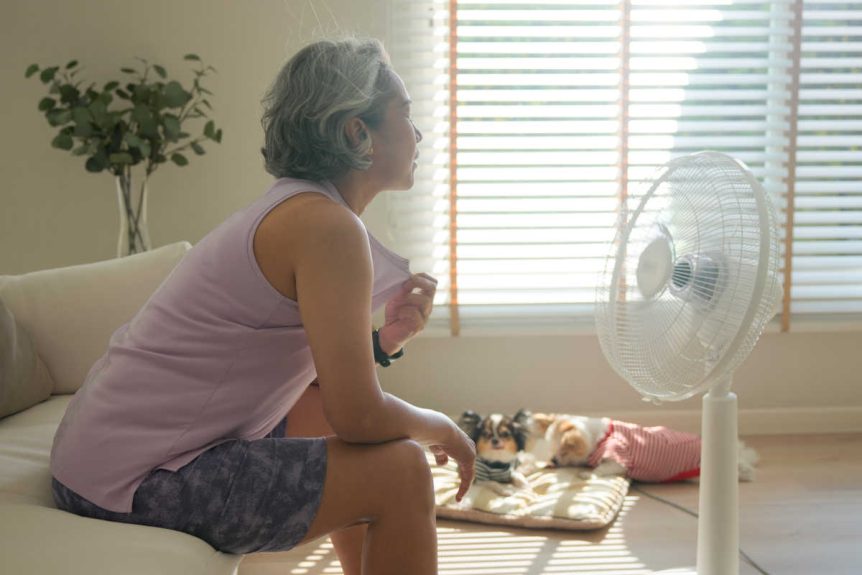
 Kristen Boye is a freelance natural health and green living writer, copywriter, and editor. Kristen was raised on an organic farm in British Columbia which inspired her life’s work. She holds a Bachelor’s Degree in Natural Health, is a Certified Natural Foods Chef, a medicinal herb farmer, natural foods advocate, and is obsessed with writing, homesteading, researching, regenerative agriculture, and words in general. Kristen lives with her husband and two children on their medicinal herb farm in Western North Carolina. Visit her online at:
Kristen Boye is a freelance natural health and green living writer, copywriter, and editor. Kristen was raised on an organic farm in British Columbia which inspired her life’s work. She holds a Bachelor’s Degree in Natural Health, is a Certified Natural Foods Chef, a medicinal herb farmer, natural foods advocate, and is obsessed with writing, homesteading, researching, regenerative agriculture, and words in general. Kristen lives with her husband and two children on their medicinal herb farm in Western North Carolina. Visit her online at: